Candy From The 1950s – All About Retro 1950s Candy
Let’s quickly hop into the 1950s and give a glance at popular treats people used to enjoy while they were hanging out with each other, watching their favorite movie on a newly bought TV, or just relaxing by themselves. This article will really give you candy nostalgia if you were a 1950s kid with pockets full of favorite candy wrappers.
After difficult times people had to go through, starting from World War I, followed by Great Depression and World War II, finally, there was economic growth and the rise of candy manufacturers that everybody was looking forward to. Some very iconic candy from the 1950s was created during that era.
Please leave a review or any memories of this snack in the comments at the bottom of this page. Thank you!
The 1950s was an exciting period for American families. Now they could afford more than they have ever afforded. Popular culture started to grow significantly. Rock N Roll music was playing in newly introduced jukeboxes, new Hollywood movies were filmed, TV was in almost every family, and going to movies became part of everyday activities. And of course, there was no entertainment for people without enjoying eating their favorite candy.
Some of the most popular 1950s candy included Atomic Fireballs and Bazooka Gum. However, some popular candies from previous decades, such as Milk Duds from the 1920s and Unicorn Pops from the 1930s were still relevant. In the 1950s, candy was seen as part of pop culture. Every child recognized iconic candy wrappers, even though some of them were created long before they were even born.
Top 11 Candy Names From The 1950s
- Pixy Stix
- Satellite Wafers
- Hot Tamales
- Atomic FireBalls
- PEZ
- Mamba Candy
- Nik L Nip
- M&Ms
- Froot Loops
- Trix
- Big Hunk Candy Bar
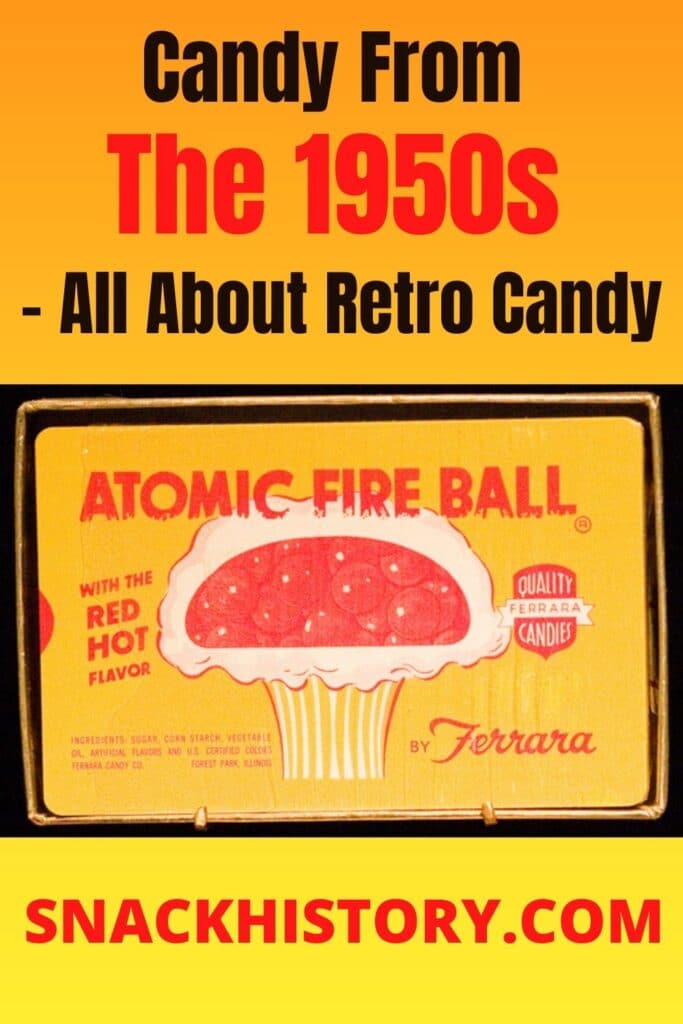
Halloween and 1950s Candy
Nowadays, you probably have no doubt that Halloween is unimaginable without trick-or-treating and, of course, candy, but it was not until the late 1950s when Halloween became a candy holiday. Back then, it was more common to give children homemade treats.
Candy became a flexible giveaway in the 1950s, as it was separately wrapped and more exciting for kids to get. If before that era, candy was more of a Christmas candy or Easter candy treat, in the ‘50s manufacturers started massive advertising for Halloween candy. Kool Aids Halloween ads suggested that trick-or-treater kids would come in for a refreshing drink. Even Kellogg’s cereal snack packs were advertised for Halloween. Do you remember your most exciting treasure from trick-or-treating in the ‘50s?
Top 11 Candy from the 1950s
Life was simpler back in the 1950s, right? The reason is that the leisure time choices weren’t so diverse. For example, people used to watch the same shows on TV, they were excited about new movies. But there was one more exciting thing – discussing popular candies with friends. Some enjoyed sweet, fruit-flavored Pixy Stix, while others loved to burn their mouths with Atomic Fireballs or Hot Tamales.
Let’s put everything aside for a moment and remember which candy wrappers were most likely to be found in your pockets after coming back from school? Read the rest of the article and remember your favorite 50s candy that will definitely make you nostalgic for old times.
1. Pixy Stix
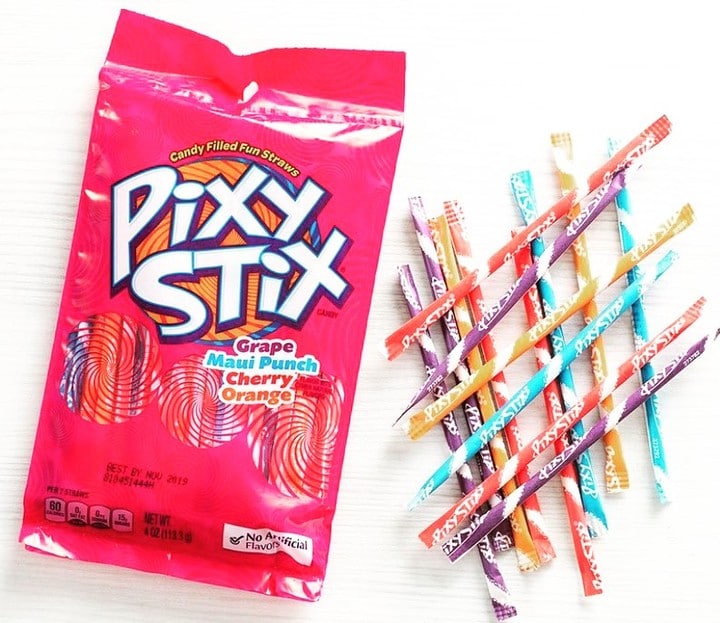
Pixy Stix candy was created by Sunline Incorporated, in 1952 in the state of Missouri. It was originally produced as a drinking powder, named Frutola. But after manufacturers found out that people would just eat the powder instead of mixing it in the water, they decided to turn this delicious powder into a straw-shaped candy.
Initially, Pixy Stix was called Lik-M-Aid. In 1959, the name was changed to Pixy Stix. Later, it was modified and the package included two different flavored powders with a candy straw to dip it in. If you remember Fun Dip candy from the 1940s, Pixy Stix was dubbed a version of it. Which sparkly powder 50s candy was your favorite?
2. Satellite Wafers
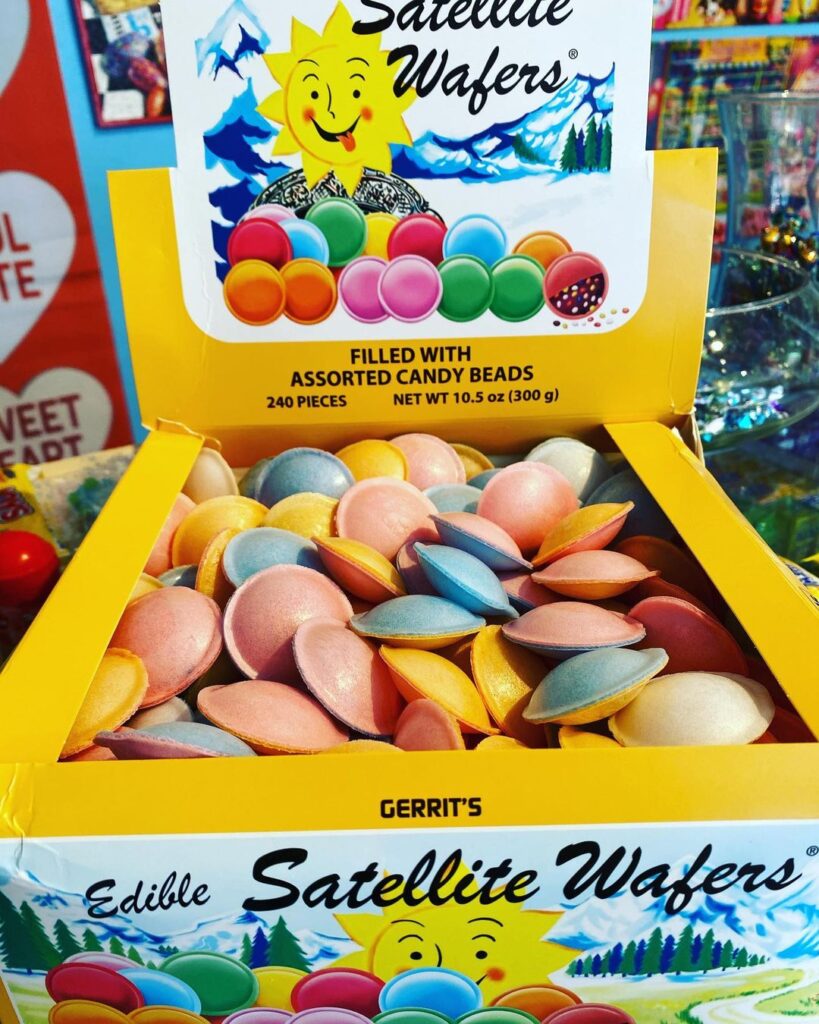
Satellite Wafers, or as some people call them, “Flying Saucers,” are unique UFO-shaped paper-like wafers filled with sugar and colorful small candies. They came out in the early 1950s and quickly became popular, especially among science lovers.
This retro candy from the 1950s was truly entertaining to eat. As many people claim, the wafer part of the candy tastes like cardboard, but it is the inside that causes curiosity and offers enjoyment.
Satellite Wafers are most often found in Belgium, where they are produced, but they became very popular in the United Kingdom as interest in the Space Race and science fiction increased. Are you attracted to UFOs? If the answer is yes, you may be the one who enjoys having Satellite Wafers from time to time.
3. Hot Tamales
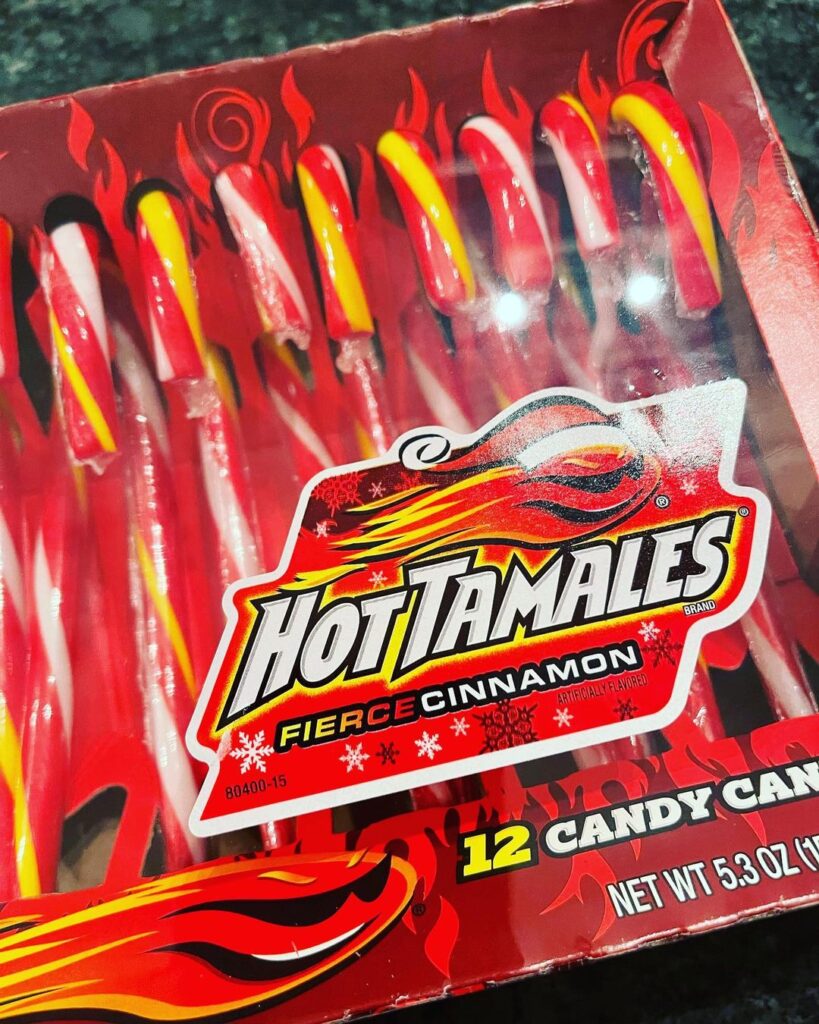
Hot Tamales were introduced by Just Born, Inc in the early 1950s. The candy gets its name from spicy tamales, because yes, like candy itself, they are very hot. It resembles the famous Red Hot candy, which was introduced earlier by the Ferrara Pan Candy Company.
Hot Tamales are spicy, cinnamon-flavored, chewy, oblong-shaped candies. There’s also a hotter version of it, which is called “Hot Tamales Fire.” Just Born is really challenging for hot and spicy candy lovers.
This untypical candy from the 1950s became the top-selling candy in America in 1999. Maybe people were competing to see who could resist eating hotter candy the best. Do you like unusual candy flavors or do you prefer to stick to the traditional ones?
4. Atomic FireBalls
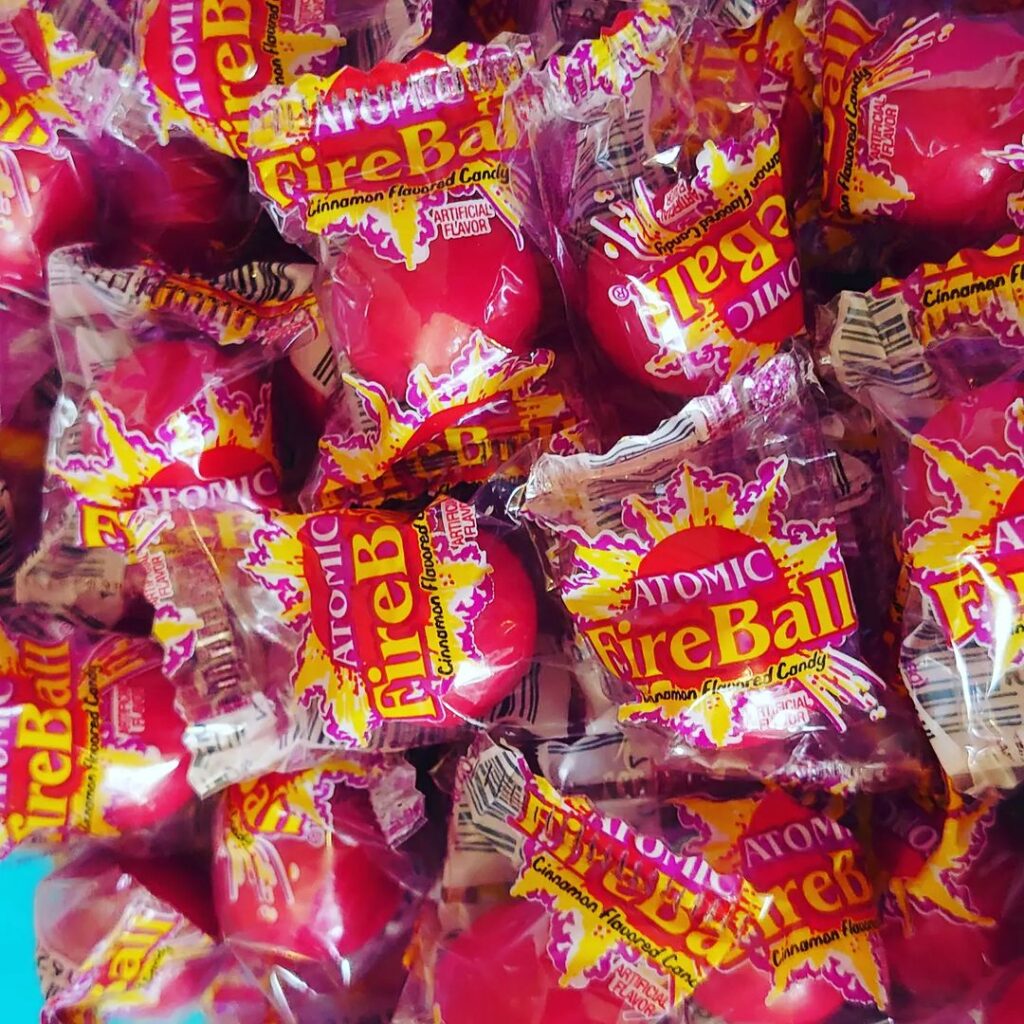
Cinnamon flavor appears to have been very popular in candy since the 1950s. Atomic Fireballs were introduced in 1954 by Nello Ferrara. As a pop culture obsession during that time, everything atomic, Atomic FireBalls were very popular. They were extremely long-lasting, like the popular Jolly Ranchers, and had a strong, spicy cinnamon flavor.
There’s an interesting fact about Atomic FireBalls, they were adopted by Flight Controllers in Nasa’s Mission Control as “Console Candy of Choice”.
If you’ve never challenged yourself to try these hot, really atomic candies, you should endure a few minutes of candy in your mouth. After some time, the coating melts in your mouth and the candy is not as hot as it was at the beginning. Isn’t this a fantastic competition idea?
5. PEZ
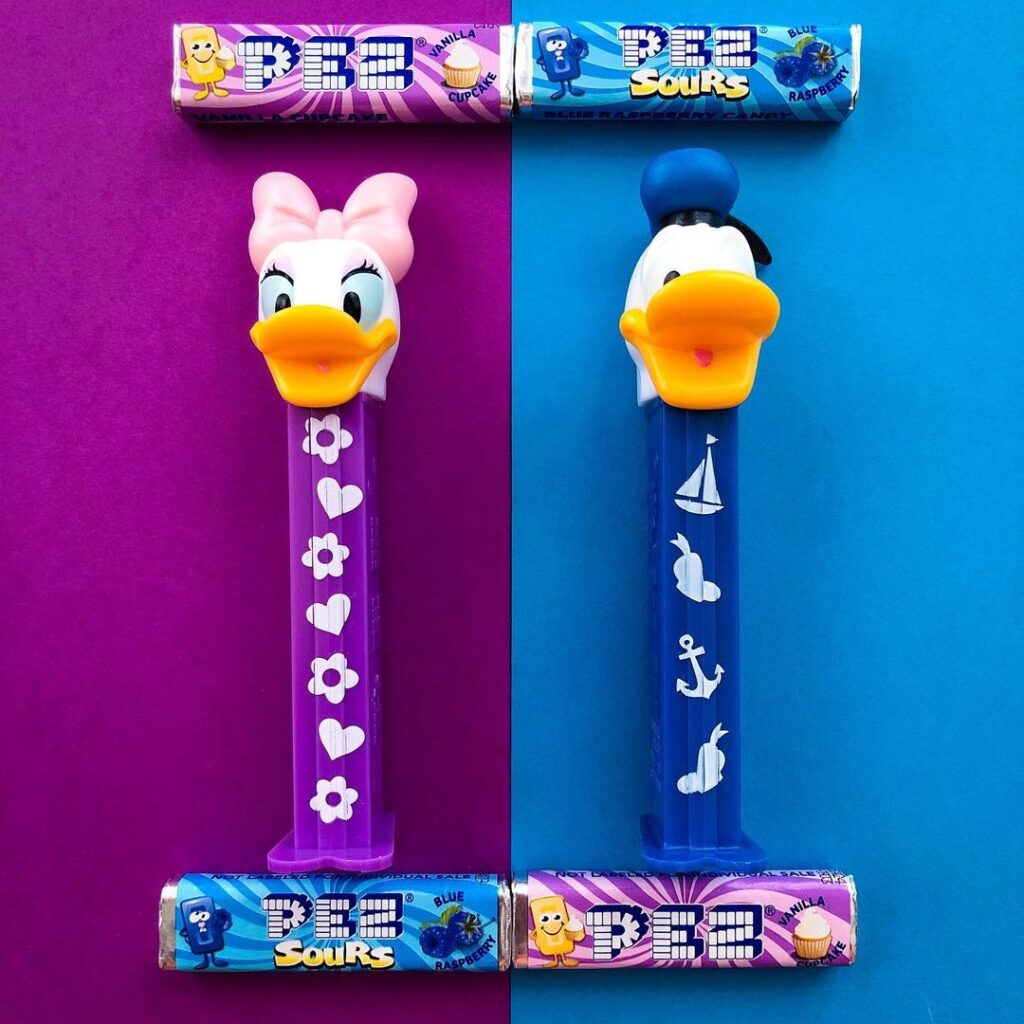
PEZ candy was invented by Eduard Haas III as an alternative to smoking. The name PEZ comes from the German word for peppermint “PfeffErminZ”. Because it was hard to pronounce, letters at the beginning, in the middle and at the end were taken out to create an easier name. Would you say “Pfefferminz” every time you wanted to have PEZ candy? Not very easy right?
Over time, PEZ introduced candy dispensers for adults that resembled lighters and had PEZ mints inside. They were used by smokers as an alternative to tobacco.
Famous PEZ dispensers are part of popular culture in many nations. In the Japanese manga series, it is believed to be “Soul Candy”.
Many dispensers had variations of designs over the years, so many people collected them. Do you still own a childhood collection of these popular candy boxes from the 1950s?
6. Mamba Candy
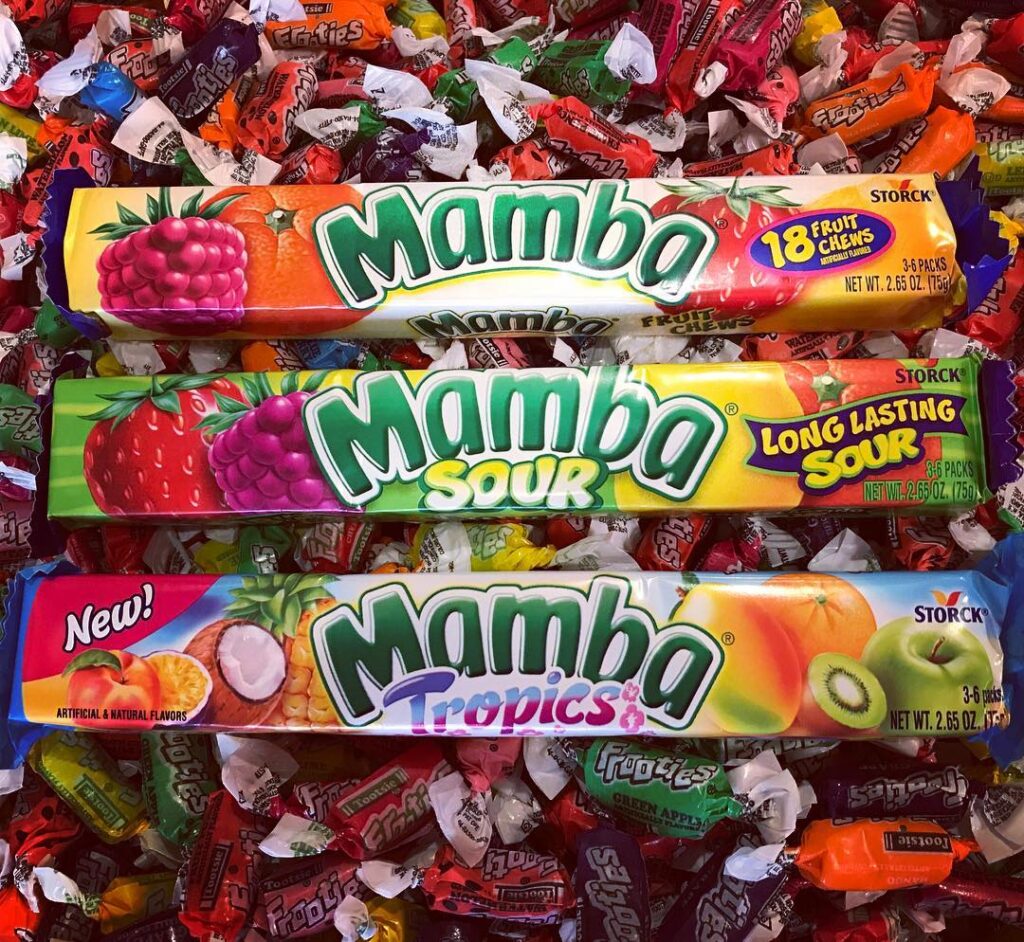
Mamba Candy was introduced in Germany in 1953. It is a chewy, fruit-flavored candy from the 1950s, which was cheap, affordable, and desirable for everyone. Especially for those who couldn’t afford pricey treats.
Mamba Candy is mostly known as Mamba Fruit Chews. How do you remember them? They are chewy taffies, and most of them are citrus-flavored. There are six of them in the package, and usually, they are randomly placed. Did you wish for your favorite flavor of Mamba when you were opening the package?
There is no original story about the name of Mamba Candy and how its creators came up with it, but one thing is for sure, when you hear it, it will give you thoughts of pleasant childhood memories.
7. Nik L Nip
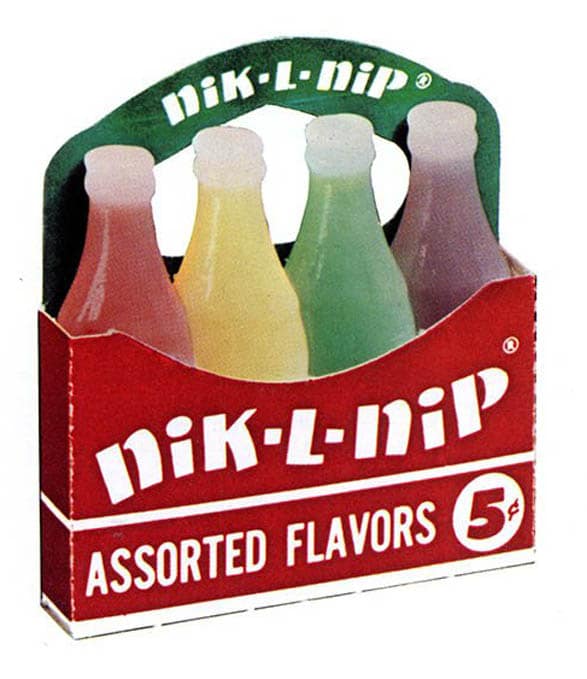
Nik L Nip, or otherwise known as Wax Bottles, were introduced in the 1950s by the Tootsie Roll Company, which is also famous for creating Tootsie Pops and Tootsie Rolls. The name Nik L Nip comes from the candy price, which was a nickel back then, and the method of opening the wax bottles, which was by nipping.
Do you remember the feeling after biting off the little bottle caps candy and drinking the fruity-flavored liquid from them? There were four flavors available, cherry, orange, lemon, and lime. Did you enjoy chewing the wax bottle after finishing the drinks? (The wax was meant to be chewed but not swallowed.)
Nik L Nip is a unique candy from the 1950s, which is a timeless classic. These iconic Wax bottles will definitely throw you back to your childhood.
8. M&Ms
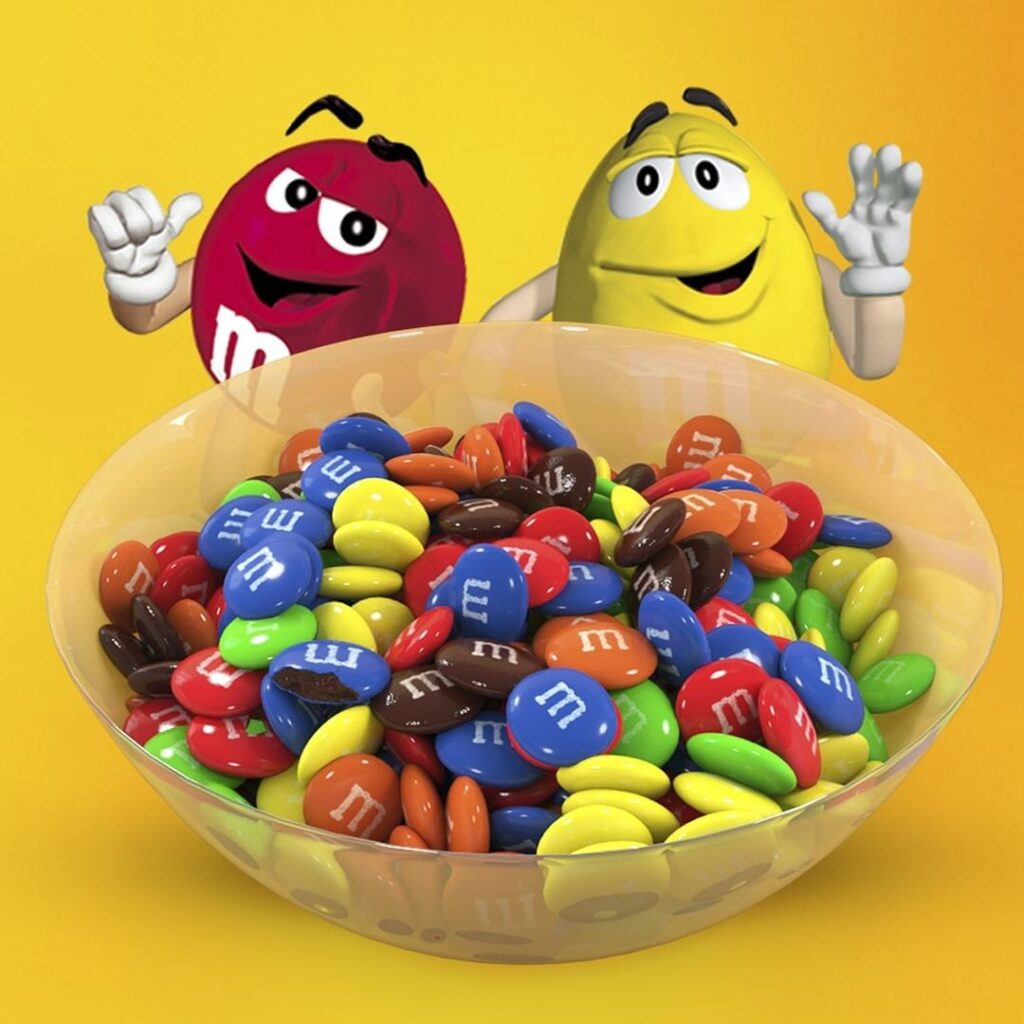
After M&Ms changed production from being MRE food for soldiers and became available for the masses, it gained huge popularity. In the 1950s, Forrest Mars took ownership of the M&Ms brand. That is also when the famous “M” logo on each candy was created. Customers were encouraged to “Look for M on every piece”, to make sure they were getting the real thing.
M&Ms is hardened liquid chocolate in a colorful coating. In 1954, the company started producing M&Ms with peanuts inside. The most famous advertising slogan, “It melts in your mouth, not in your hand,” was first used in the 1950s too.
The creativity of M&Ms rapidly rises during the holiday seasons. They offer different color variations for each holiday. Like green and red ones for Christmas, orange, brown, and red for Halloween, etc. M&Ms is everyone’s favorite candy from the 1950s. Which type of M&Ms is your favorite?
9. Froot Loops
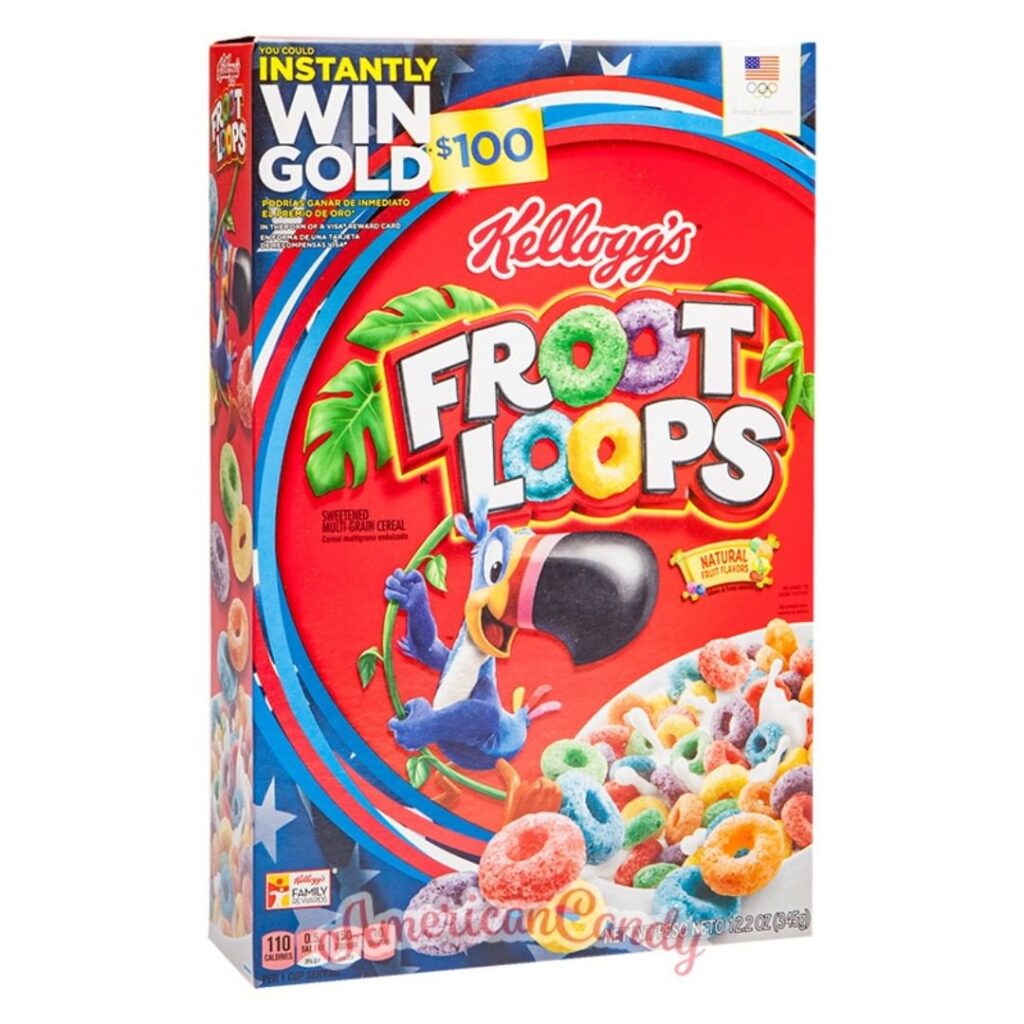
Froot Loops is a sweet, fruit-flavored cereal that is produced by Kellogg’s. They are ring-shaped cereal, which comes in many different colors, however, there is no actual fruit in Froot Loops and each ring tastes the same.
Froot Loops were invented in 1959, and since then they have been on every family’s shelf as their favorite simple and delicious breakfast idea.
There’s a cartoon character named Toucan Sam, who is a mascot for Froot Loops cereal. It has been around since 1963 and uses amusing ways to promote Froot Loops.
Kellogg’s is also famous for producing Froot Loops cereal bars. Which one do you prefer in the morning? A ring-shaped cereal in your milk or a cereal bar?
10. Trix
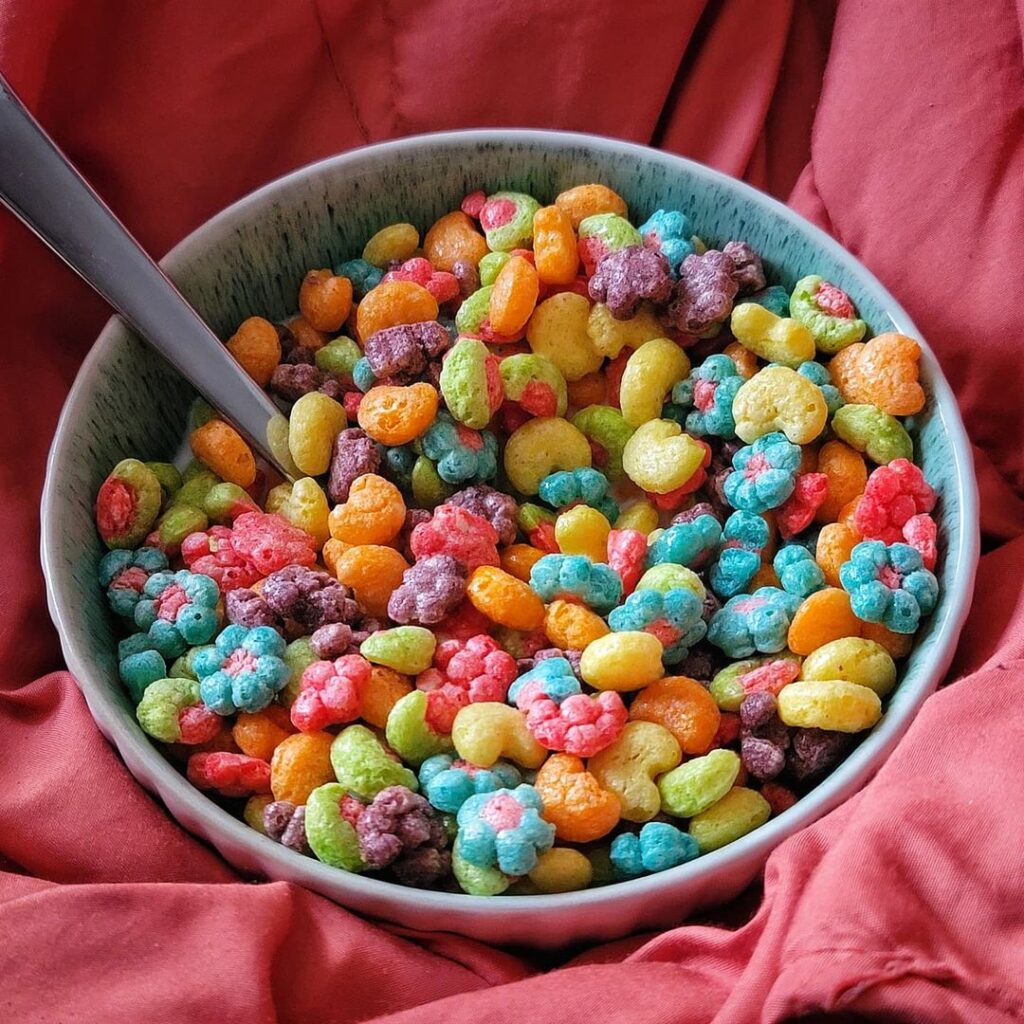
Trix is an American breakfast cereal brand that is made by General Mills. It was introduced in 1954 and was the sugar-coated version of the popular Kix cereal. Trix cereal is fruit-flavored, sweetened, ground-corn-flavored.
The cereal originally used spherical cereal pieces, but to avoid a resemblance to Berry Berry Kix, the manufacturers changed the shape into puffies.
Soon after the debut of Trix, Joe Harris, a copywriter, and illustrator, using a rabbit as an advertising mascot for Trix. It was called “Silly Rabbit”. There was an iconic tagline in the commercial: “Silly rabbit! Trix are for kids. ” Do you agree that it is for kids? I bet adults also enjoy bowls full of Trix puffies in the morning.
11. Big Hunk Candy Bar
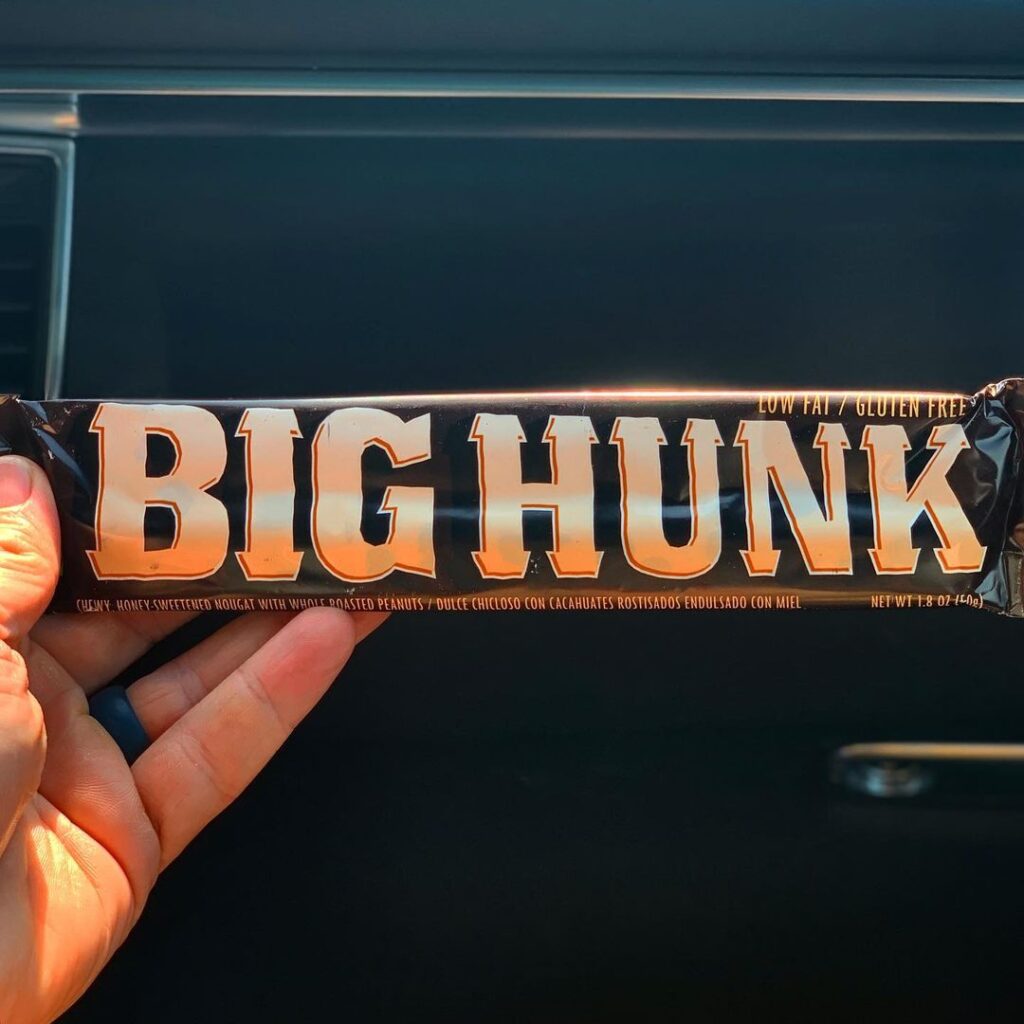
It is peanuts (peanuts again) wrapped in honey flavored nougat. The Big Hunk Bar is an all-time favorite candy from the 1950s among kids and adults who enjoy honey-nugget chewy treats. The question is, who doesn’t? This candy bar was introduced by Annabelle Candy Company, which also created the famous Abba Zaba Candy Bar earlier. Some people enjoy eating it frozen while breaking Big Hunk candy bars into pieces. Others love the chewy nougat texture and prefer it as is.
The Big Hunk Bar slogans were very appealing. One sounded like “Put big profits in your pocket with a big hunk”.
Bottom Line 1950s candy
Different treats from every decade play an important role in people’s lives. Candy from the 1950s has not been an exception. The era has changed a lot after difficult times, but love for your favorite sweets has not.
Over the years, candy has become an unchangeable part of everyday life. People enjoyed their favorite cereal or chocolate bar with their coffee every morning, while they were probably watching newly introduced TV commercials or listening to their favorite music on jukeboxes. Children were excited to share their favorite 50s candy with their friends, like 3 Musketeers candy bars. Or they hoped to find a favorite flavor in Mamba Candy Chews.
Some 50s candy was fun, like Wax Bottles. Some of them were cool to taste, like Candy Cigarettes, while some burned your mouth and made you cry, like Hot Tamales or Atomic Fireballs.
We would not lie to say that the candy from the 1950s played an important role in making children happier on Halloween. As it became an essential part of Halloween and trick-or-treating, children would go crazy hunting for their favorite treats. Who would not be excited to get a handful of their favorite candy?
And again, which iconic candy or snack was your favorite from the decade of the 1950s? Admit it, some of the items on our list made you really nostalgic about your childhood. Please share your thoughts with us in the comments. We’ll be glad to discover your exciting stories.
Candy Era

Nato is a content writer and researcher with a background in psychology. She’s passionate about writing about the candy industry and exploring the cultural significance of sweets and treats. She believes that the stories behind our favorite snacks can reveal a great deal about our values.
Please leave a review or any memories of this snack in the comments below. Thank you!
Click here for a full A-Z list of Snacks and Candy
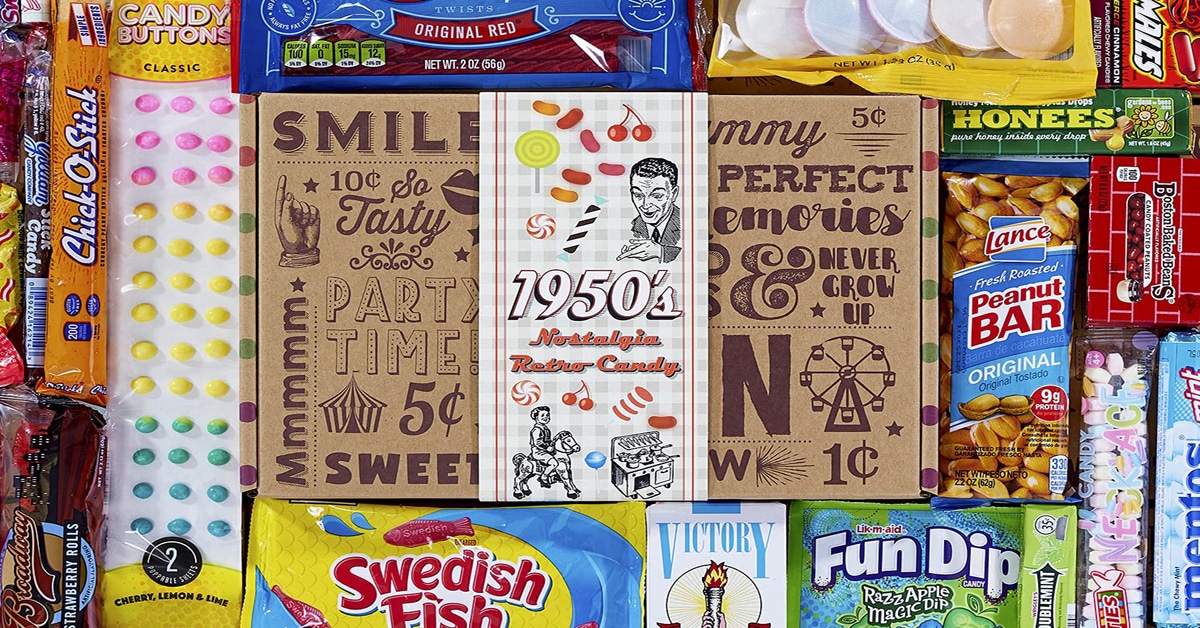
I LOVED THE WAXED BOTTLES THE DIFFERENT SHAPES WERE FUN TO PLAY WITH
I loved Big Hunks l’ve Looked every where! It’ s a taffy with nu t’s U had to be careful when U. Ser head it out becanse the nutS would go all over. The best thing was to get it warm it was fun to play with! Thank U for bring back the memory’s!
You forgot to mention bazooka Joe gum came with comics and if you collected some you could get stuff, just had to pay shipping, I had a real blast.
While this 1960 model enjoyed Lik-M-Aid, Pixie Stix and, Atomic Fireballs, my faves, always were/are, still, Love Hearts, SweeTarts and, Bottle Caps.